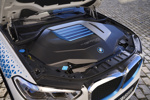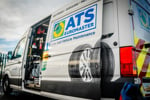Major changes to how the Government taxes drivers who receive free fuel for private mileage will present a huge challenge for fleet decision-makers.
Chancellor of the Exchequer Gordon Brown revealed in Budget 2002 that a new fuel scale charge would come into effect from this year.
Until this year, drivers have paid tax on the benefit of free fuel based on the engine size of their cars and the Government had been trying to discourage the benefit with a five-year campaign of tax hikes that were 20% above the rate of inflation.
But the programme of tax increases ended last year and a new carbon dioxide-based system has now been introduced, which means free fuel will be a great benefit to some drivers, while it will not be worth others receiving it.
Under the new system, the benefit of free fuel for private mileage is given a nominal value, which for this tax year is £14,400. The amount of tax drivers incur on this value is based on the carbon dioxide emissions of their company car, using exactly the same formula as their company car tax calculation.
This effectively means the £14,400 benefit is just added to the P11d value of their company cars, before using the CO2 figure to calculate the taxable benefit. Because the system is based on the company car tax bands, drivers will also incur a 3% penalty if they drive a diesel that is not Euro IV emissions compliant and they will receive discounts for using alternatively-fuelled vehicles.
Furthermore, the fuel scale charge is no longer an 'all or nothing tax' so if the driver receives the benefit for a month and then opts-out of the scheme, they will not incur a whole year's worth of taxes.
For example, a car that has CO2 emissions of 195g/km incurs a company car tax charge for 2003/04 of 23%. The fuel scale charge will be £14,400 x 23% = £3,312. Drivers then pay tax on the figure at 22% or 40%.
Cars that were registered before January 1, 1998 and cars with no approved CO2 emissions figure will also use the same engine size-based system used to calculate company car tax. An Inland Revenue spokesman said: 'This new charge was chosen because of its administrative ease, using a figure the employer has already worked with, so there will be minimal additional administration.'
Examples of fuel scale charge under CO2-based system and private mileage needed to use more fuel than tax paid
| Examples of fuel scale charge under CO2-based system and private mileage needed to use more fuel than tax paid | |||||||||
|---|---|---|---|---|---|---|---|---|---|
| Car | CO2 (g/km) | % tax charge* | Taxable benefit** | Tax bill (22%/40%)*** | Break-even mileage | ||||
| Seat Arosa 1.0 3-dr: | 139 | 15% | £2,160 | £475/£864 | 6,964/12,710 | ||||
| Peugeot 406 GLX 2.0 HDI 110: | 147 | 18%**** | £2,592 | £570/£1,036 | 8,365/15,260 | ||||
| Audi A4 1.9 TDI 130: | 149 | 18%**** | £2,592 | £570/£1,036 | 8,500/15,451 | ||||
| Ford Mondeo 1.8 LX: | 185 | 21% | £3,024 | £665/£1,209 | 7,352/13,368 | ||||
| Vauxhall Omega 2.2 GLS: | 231 | 30% | £4,320 | 950/£1,728 | 8,437/15,346 | ||||
| Land Rover Discovery 4.0 V8: | 397 | 35% | £5,040 | £1,108/£2,016 | 5,656/10,292 | ||||
For 2003/2004 tax year
** Based on gross fuel value £14,400
*** Average fuel cost: Unleaded £3.31 per gallon; Diesel £3.44 a gallon
**** Includes 3% diesel supplement















Login to comment
Comments
No comments have been made yet.